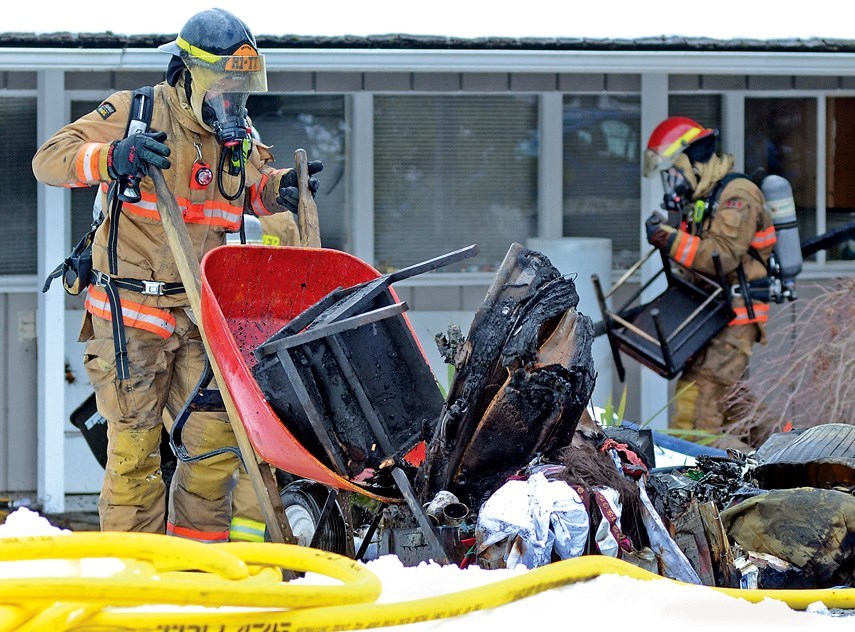Firefighters are breathing a little easier following a federal ban on some chemical fire retardants that do little to stop the spread of fire but pose grave health risks to anyone exposed to them burning.
Jonathan Wilkinson, Canada’s minister of environment and climate change, made the announcement in his home riding at the District of North Vancouver Fire Training Centre on St. Denis Avenue Wednesday morning.
Wilkinson said Canadians owe a debt to firefighters for their selfless service in a dangerous field, and for the measurable harm that comes to them from being exposed to toxic chemicals that are known to cause cancer and other illnesses.
“We also need to be there for firefighters when they need us,” he said. “The heroism involved in rushing towards burning buildings isn't just about the immediate and the obvious physical health hazards. In particular, there is concern about firefighters’ exposure to hazardous substances from the burning of harmful chemical flame retardants.”
Following the announcement, the federal government will prohibit the manufacture, import, use and sale of 15 flame retardants known to cause health problems. Another six are under consideration for a future ban, and 14 more will be studied further to determine if they cause health impacts. There are a total of 150 flame retardants that are available in Canada, Wilkinson noted.
The chemicals are common in mattresses, upholstery, fabrics, electronics and children’s toys, but they may be doing more harm than good, said Ryan Stewart, president of the International Association of Fire Fighters Local 1183.
“We haven't seen any real evidence that chemical flame retardants actually make things safer. What we do see is that when they burn, they actually create a thicker, blacker, hotter environment in a structure fire,” he said. “What we're seeing is scientific evidence related to these chemicals being found in people's bodies and in the environment.”
The IAFF Local 1183 has long been lobbying for better federal protection. But the partial ban is a step in the right direction, rather than an extinguished threat, Stewart said.
“With the chemical flame retardants, one of the challenges is formulas can change, creating a new version of that chemical,” he said. “I think there are steps in place that will help address that, but it will be a wait-and-see approach to see if it works.”
Wilkinson also said the chemicals invariably end up in the ocean, where they accumulate in each level of the food chain, including in southern resident killer whales, which have been dubbed as “fire proofed” by ocean pollution expert Peter Ross.
Canada has approximately 150,000 volunteer and professional firefighters.



